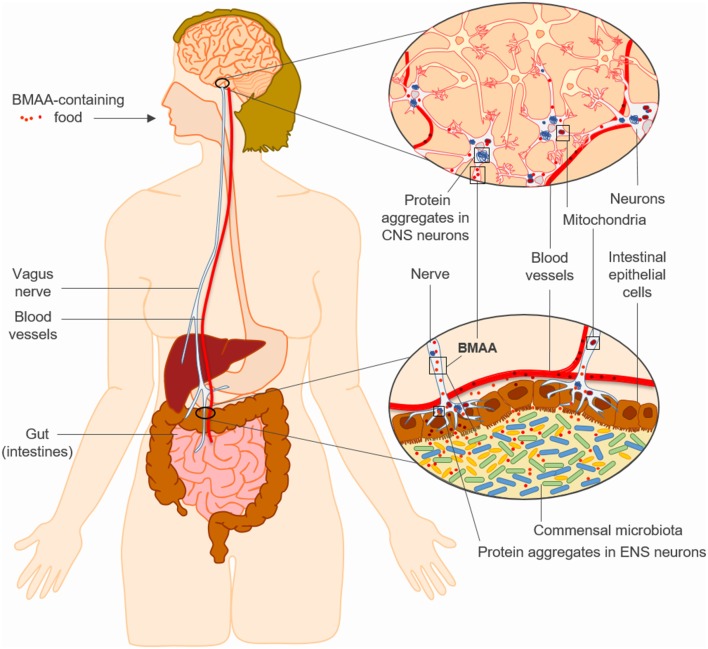Figure 1.
The “neurotoxin hypothesis” for sporadic neurodegenerative diseases such as Parkinson’s disease (PD). Chronic intestinal exposure to β-N-methylamino-L-alanine (BMAA) may trigger neurodegeneration by promoting protein misfolding, mitochondrial dysfunction and innate immune responses in genetically susceptible individuals, initially in the enteric nervous system (ENS) and later in the central nervous system (CNS) through retrograde transport via the vagus nerve.

